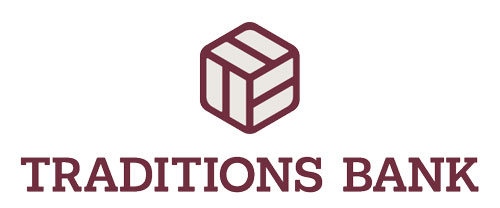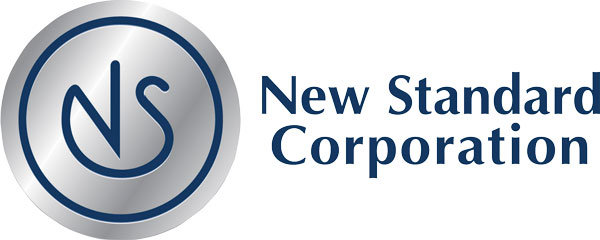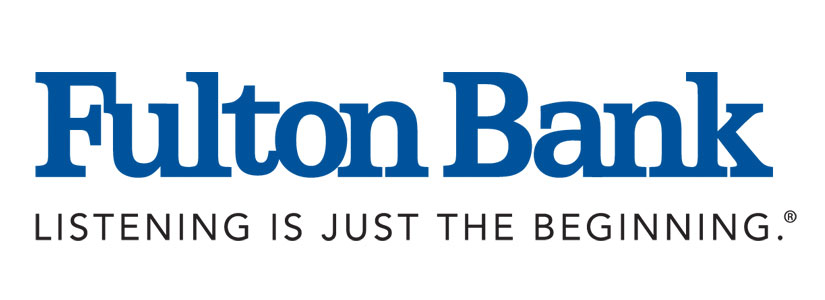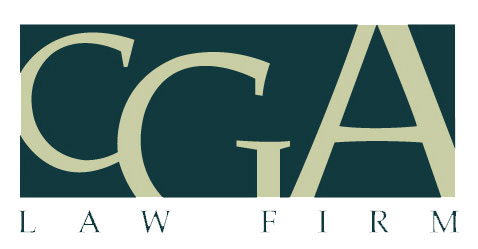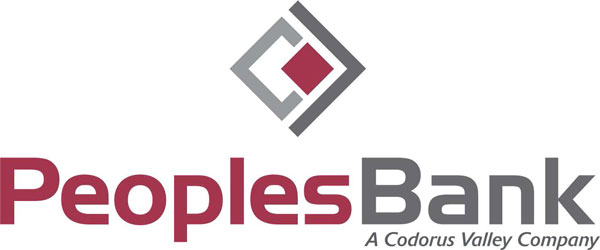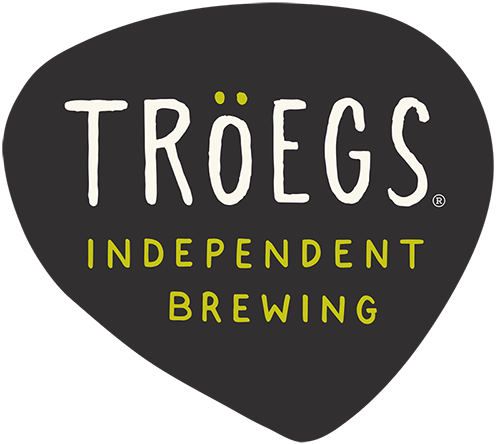About Us
Mission
Inspire, educate and entertain through professional performing arts experiences that bring together York County’s diverse voices.
Our History
For the last 40+ years, the Appell Center for the Performing Arts (formerly known as the Strand Capitol Performing Arts Center) has served as the cultural hub of downtown York. It has presented national touring performers and films. It has served as a center for education and community engagement. And it has provided a performance space for the York Symphony Orchestra, Greater York Dance, the York County Honors Choirs and many more.
While its architectural footprint has expanded over the years, the heart of the organization is its two historic theaters – the Capitol Theatre and the Strand Theatre.
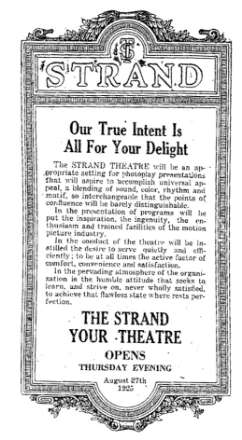
Borne in the Era of Film
The Capitol Theatre began its journey in 1906. That year, it opened as “The Theatorium,” a dance hall and performance space. Soon, the programming shifted to the big screen as silent film moved into its golden age. In 1908, the theater was purchased by RC Jackson & Co. And in 1917, it saw a huge renovation with a balcony and raked floor. The changes created a true film house – the Jackson Theater.
As the silent film industry boomed in the 1920s, so did the number of York theaters. In August 1925, Appell Enterprises, led by Nathan Appell and his son Louis, opened the Strand Theatre. It was a million-dollar structure built in the Italian Renaissance architecture style. The theater was built for film, but it was designed with expansion in mind.
Soon after they opened the Strand Theatre, Appell Enterprises purchased the Jackson Theatre. They renamed it the Capitol Theatre and opened its doors on August 9, 1926. Appell Enterprises didn’t stop there. They purchased 14 theaters in central Pennsylvania. Seven of those theaters were within two minutes of York’s Continental Square.

The Studio Era
In 1928, Nathan Appell unexpectedly passed away. By 1930, “The Studio Era” had begun. The era was marked by the rise of major production houses like Warner Brothers and MGM. They purchased venues across the country so they could screen their own films. Appell Enterprises sold all its theaters to Warner Brothers.
Film screenings continued in the Strand and Capitol Theatres through ownership changes and the demise of the Studio Era. The Post World War II era brought the construction of the suburbs. With it came shopping malls and the first megaplex theaters. By the mid-1960s, attendance at downtown theaters suffered, and by 1977 the Strand and Capitol Theatres had closed their doors.

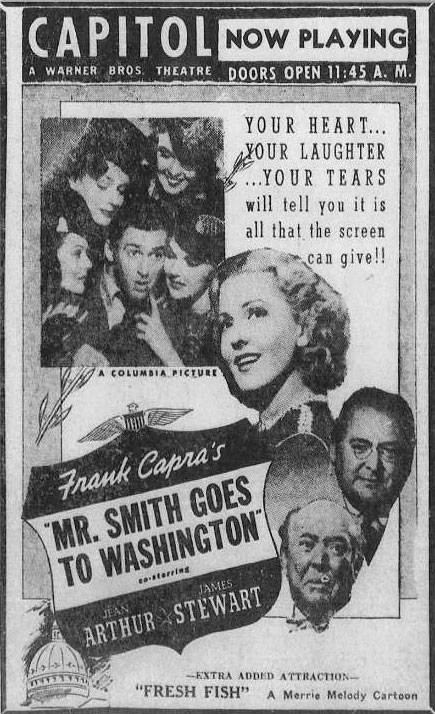
A New Performing Arts Center
Before the Strand and Capitol Theatres closed, the community was already thinking about a downtown performing arts center. In 1972, the York County Coalition Task Force made the idea formal. It formed an ad hoc committee in 1976, on which one Louis Appell, Jr. (grandson of Nathan Appell), served. Committee members sought to transform the theaters into a performing arts center and downtown centerpiece.
The path was rocky. Many proposals and plans came and went. Finally in 1977, members of the Junior League of York found a way forward. They created a framework to purchase and renovate the Strand and Capitol Theatres. That winter, the theaters were purchased from the City. A Board of Directors was formed, and fundraising for the new center began.
On April 12, 1980, the Strand Capitol Performing Arts Center opened its doors. The opening gala was a night to remember with a performance led by jazz legend Ella Fitzgerald and the York Symphony Orchestra.



Appell Center for the Performing Arts
In 2016, Louis Appell, Jr., passed away. Shortly after, the Board of Directors renamed our organization the Appell Center for the Performing Arts. The name celebrates four generations of Appells who have led, supported and partnered with us and our downtown York community.
We are approaching the Strand Theatre’s 100th anniversary in 2025. As it draws near, the Appell Center continues to lay the groundwork for the next 100 years of performing arts in historic York, Pennsylvania.

Diversity, Equity, Inclusion & Accessibility
DEIA Vision Statement
The Appell Center for the Performing Arts will be a performing arts hub that reflects the cross-cultures, ideas, experiences and faces of York County.
Community Commitment
As a public gathering place for our diverse community, we at the Appell Center see it as our top priority to ensure that all patrons, performers, staff and guests feel welcome – regardless of age, gender, ethnicity, race, religion or sexual orientation. The performing arts are designed to unite everyone in shared experiences and expand all our horizons. Filling our house with those of diverse backgrounds and perspectives makes our entire organization stronger.
When Louis Appell Jr. set out to revive the Strand and Capitol Theatres back in the 1970s, his vision was to design theatres so beautiful that every person who walked through the doors felt they were about to experience something special, and to build accessible, inclusive theatres that every single member of the community could enjoy.
We at the Appell Center for the Performing Arts see it as our duty to carry on that very important vision through all of our programming selections, education programs and community outreach initiatives. We also respect every individual’s use of personal pronouns which defines how they identify. Within these walls everyone will be always be welcome, safe and, above all, entertained!
Putting our Commitment into Action
As part of an organization-wide training and planning process led by Donna Walker-Kuhne, the Appell Center crafted a two-year plan to guide our Diversity, Equity, Inclusion and Accessibility (DEIA) work:
Build programming to include 30% of mainstage presentations and 25% of film screenings that feature artists and/or stories from LGBTQIA+ and communities of color.
- 30% of Strand Theatre shows, 9% of Capitol Theatre shows, 35% of Studio performances and 36% of films featured artists and/or stories from communities of color LGBTQIA+ (July 2023 – February 2024).
- Introduced a new Black History Month Fillm Series (February 2024)
- Upcoming Spring 2024 performances feature Lyfe Jennings & J. Holiday, Step Afrika! and Plena Libre
Increase percentage of audience from communities of color from 4% to 7%.
13.56% of audiences identify as communities of color, up from 6.62% in 2023 (January 2024).
- Develop 10 active Community Partnerships.
- Provide 1,200 free tickets to historically marginalized communities.
- Develop opportunities for under-represented communities to have voice in Appell Center learning and engagement.
- Create 2-3 sensory-inclusive opportunities annually.
- Established a philosophy of collaboration.
- Distributed 656 free tickets to 45 partner organizations since July 2023.
- Held community listening sessions; delivered outcomes report.
- Developed partnership with Autism York for bi-monthly film events; sponsored 2023 Autism Walk fundraising event.
- Bring on one member of the senior team and one to two members in other positions from communities of color.
- Increase Board and committee diversity from seven to ten.
- Increase cultural diversity of volunteer corps by 25%.
- One member of Appell Center staff from communities of color.
- Five Board members and four committee members from communities of color as of June 2023.
- Demographics benchmarking for Volunteer program and recruitment in progress.
- Hire 10% of capital project contractors and 10% ACPA vendors from Disadvantaged Business Enterprises (DBEs).
- Improve venue accessibility for all guests.
- 30% of contractors for summer 2023 renovations are DBEs; benchmarking for ACPA vendors pending.
- Balcony railings added in Strand Theatre; new doors with accessibility hardware added to both theaters; new website launched with ADA compliance, Spanish language translation and more.
- Receive three gifts annually in support of DEIA and Community Engagement activities.
- Solicit 2% of annual contributed income from Members and Sponsors from communities of color.
- Received a York County Community Foundation Racial Equity Grant in 2022-23 to support a new ‘Careers in the Arts’ learning program.
- The first Affinity Group Event and reception was held immediately preceding the Ledisi concert on March 6, 2024.
Staff & Board
The Appell Center for the Performing Arts staff is a talented group of individuals all striving towards a common goal — to elevate and spotlight performing arts and education in downtown York. Please contact us with any questions, ideas or concerns you may have — we look forward to hearing from you!
Todd Fogdall
President & CEO
717-825-2230
tfogdall@appellcenter.org
Trevor Alford
Director of Finance & Accounting
717-825-2233
talford@appellcenter.org
Mindi Haines
Director of Development
717-825-2235
mhaines@appellcenter.org
AJ Myers
Director of Education & Community Engagement
717-825-2242
ajmyers@appellcenter.org
Amanda Spalla
Director of Operations
717-825-2247
aspalla@appellcenter.org
Debra L. Volz
Director of Marketing
717-825-2231
dvolz@appellcenter.org
Dave Hoffheins
Marketing Content Manager
717-825-2234
dhoffheins@appellcenter.org
Kimberly Soderberg
Development Manager
717-825-2236
ksoderberg@appellcenter.org
Robert Delany
Programming Assistant
717-825-2232
rdelany@appellcenter.org
Dan Crowell
Development & Education Assistant
717-825-2239
dcrowell@appellcenter.org
Jeremy Kilgore
Operations Assistant
717-846-1111
jkilgore@appellcenter.org
Carol Potter
Administrative Assistant
717-825-2240
cpotter@appellcenter.org
Julie Lavetan
Senior Box Office Agent
717-846-1111
boxoffice@appellcenter.org
Bea Campbell
Box Office Agent
717-846-1111
boxoffice@appellcenter.org
Kira Wagner
Board Chair
Elaine Bonneau
Vice Board Chair
Bonneau and Associates
Gene Draganosky
Immediate Past Chair
Traditions Bank
Victoria Connor
Finance Committee Chair
York County Bar Association
Natalee Gunderson
Partnership Committee Chair
York County Community Foundation
Kyle Jones
Facilities Committee Chair
PFM Asset Management
Mary Beth Ching
IREGC
Martin Fedorko
White Rose Ventures
Rev. Dr. Mark Kearse
Cornerstone Baptist Church
Jenette Lloyd-Jones
WellSpan Health
Dan Meckley
Kratos Defense and Security Industries
Thomas O’Shea
CGA Law Firm
Dr. Kurt Thomas
UPMC
Dr. Paul Tolerico
WellSpan Health
Larissa Tosch
Glatfelter Insurance Group
Elizabeth Zifferer
Junior Achievement of South Central PA





